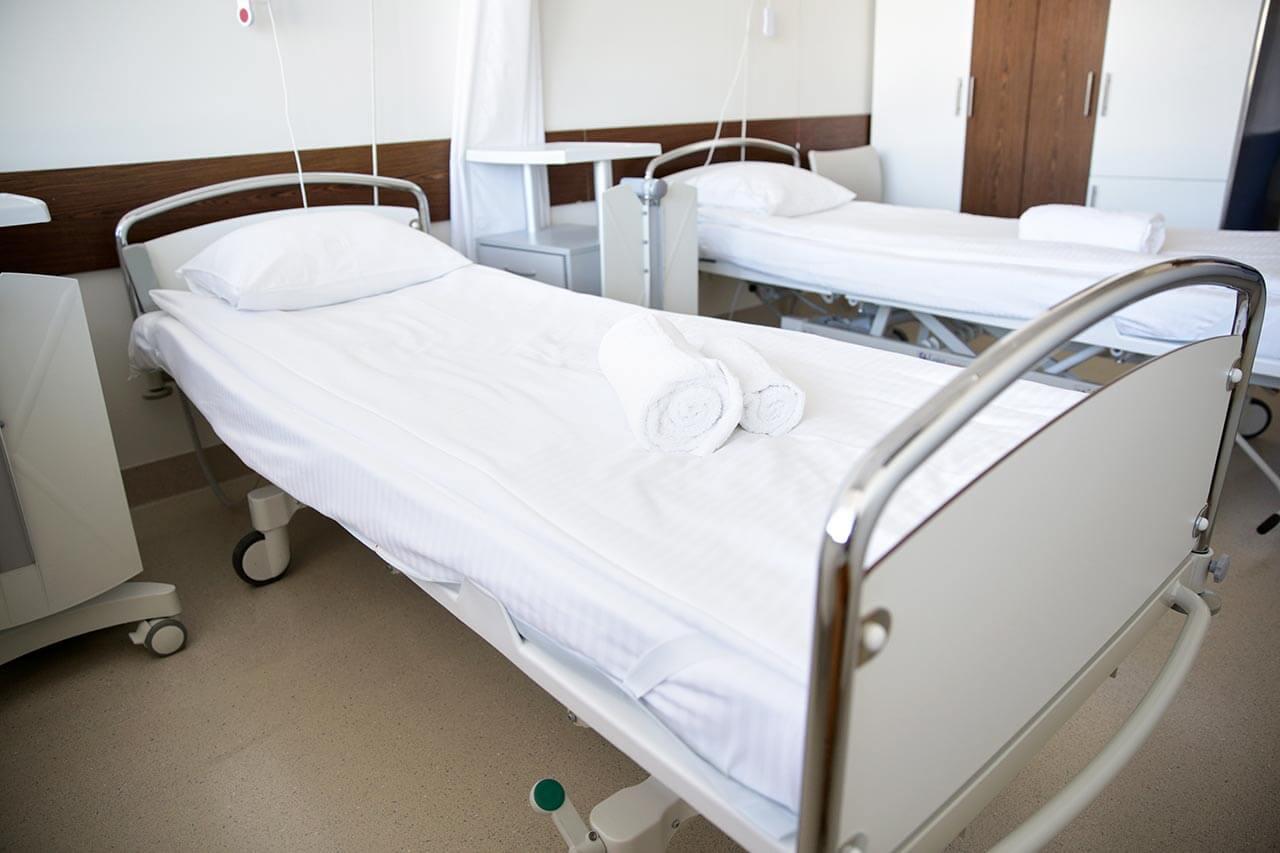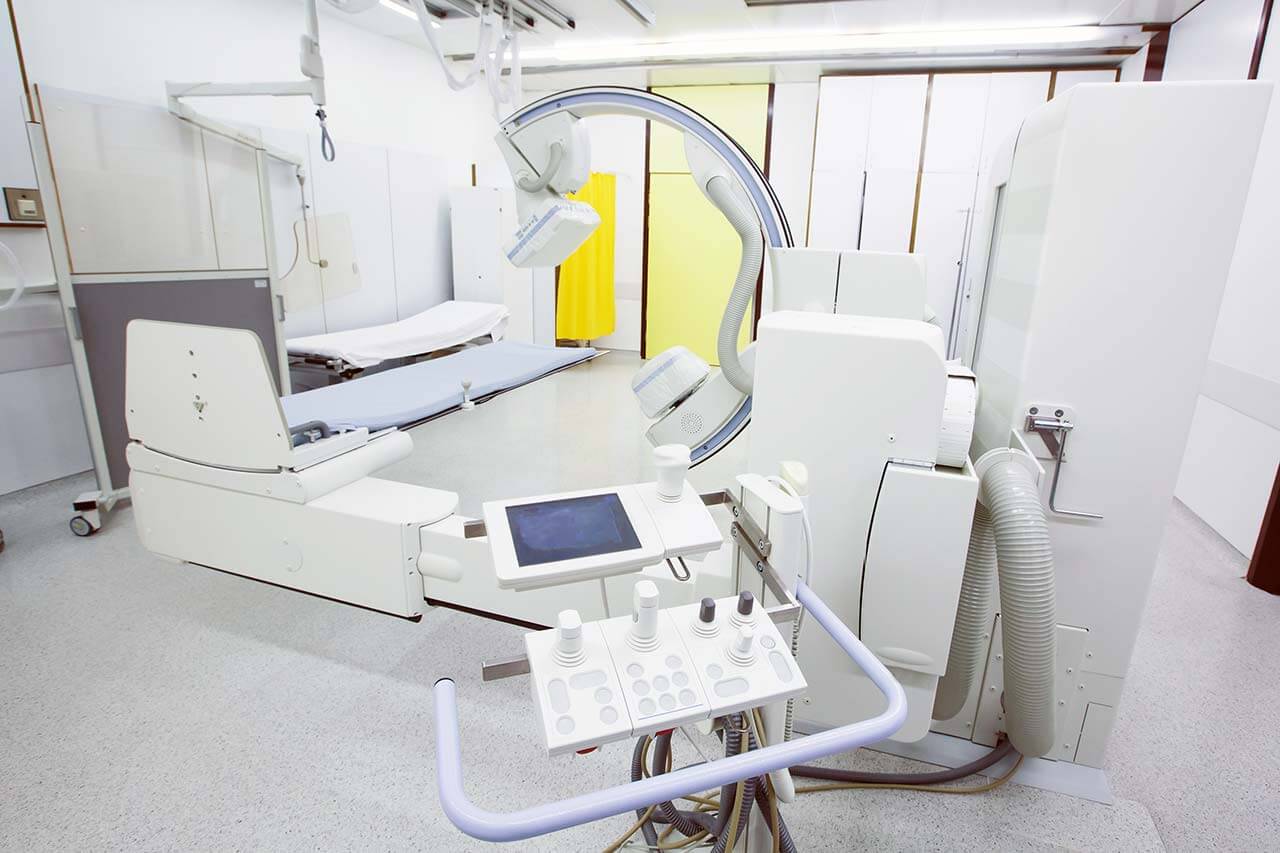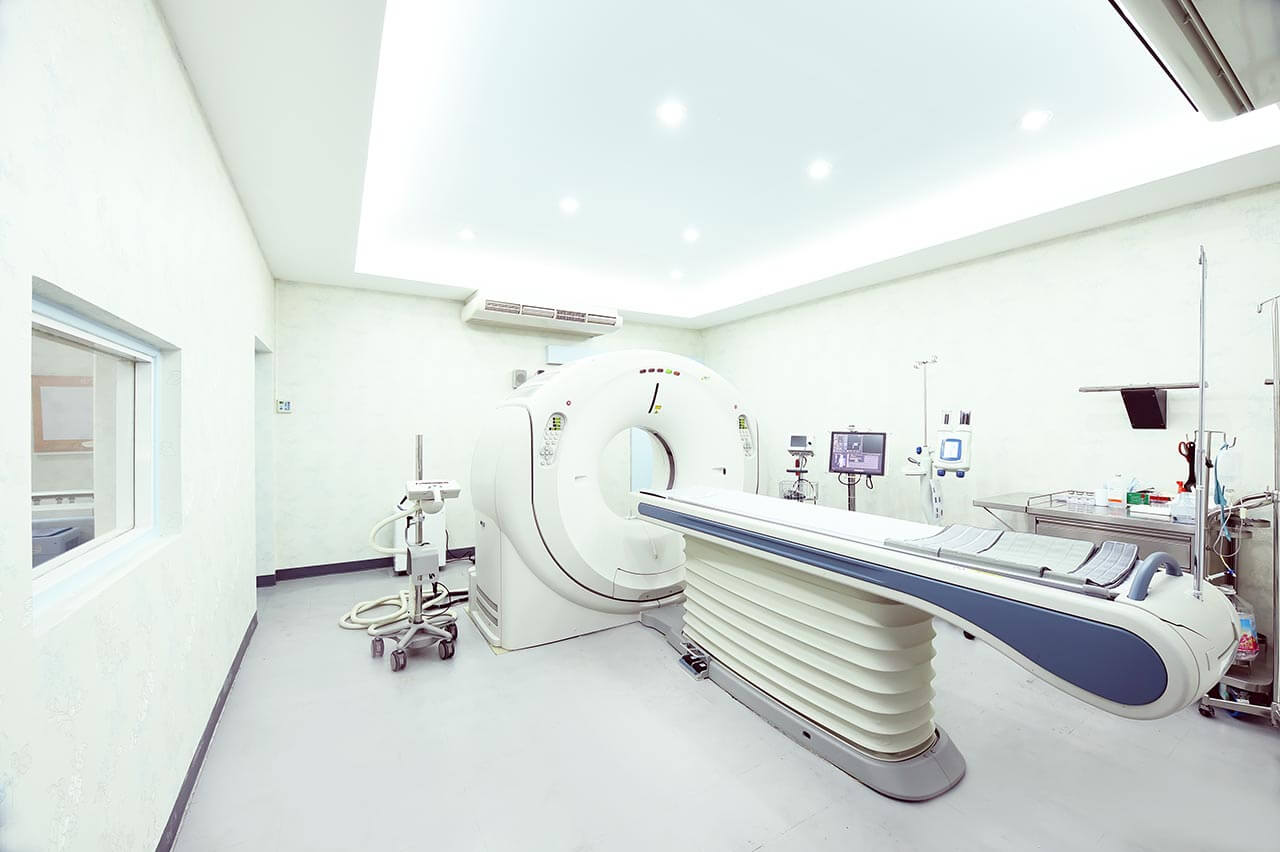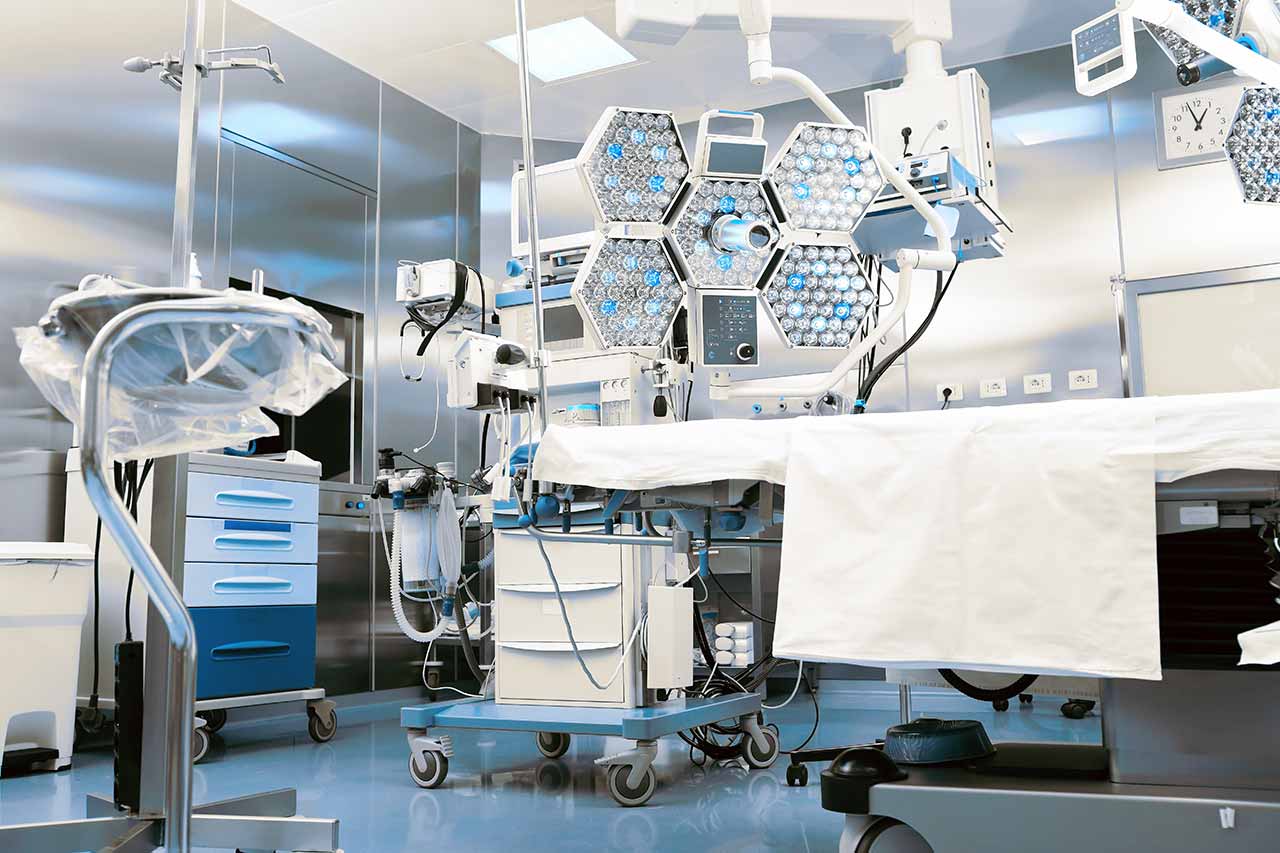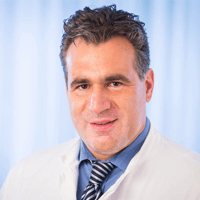
The program includes:
- Initial presentation in the clinic
- clinical history taking
- physical examination
- review of medical records
- laboratory tests:
- complete blood count
- general urine analysis
- biochemical analysis of blood
- indicators of inflammation (CRP, ESR)
- indicators of blood coagulation
- X-ray examination of the knee
- CT scan of the knee
- preoperative care
- endoprosthesis replacement
- symptomatic treatment
- control examinations
- physiotherapeutic procedures
- orthopedic appliances
- the cost of essential medicines and materials
- nursing services
- full hospital accommodation
- explanation of future recommendations
The program includes orthopedic rehabilitation:
- Primary presentation in the clinic
- medical history, including family history
- complex neurological and orthopedic examinations
- X-ray examination
- complex neurophysiological examinations
- individual rehabilitation program, which includes:
- Wii Fit training in the use of the balance
- neuropsychological therapy
- functional therapy of the upper extremities (ArmeoSpring)
- kinesitherapy (physiotherapy)
- biocontrol with feedback
- healing deep muscle massage
- acupuncture of spasticity and pain syndromes
- occupational therapy
- psycho-educational classes
- individual physiotherapy
- microcurrent treatment
- fangotherapy / cryotherapy
- antispasmodic drug therapy
- mobilization of limb joints
- hydrotherapy / massage therapy / reflexology
- training on special trainers
- etc.
- nurses care
- stay in the hospital with full board
- symptomatic and drug therapy
How program is carried out
Preliminary preparation for surgery: quitting smoking and drinking alcohol 2 weeks before surgery; cancelling non-steroidal anti-inflammatory drugs (diclofenac, ibuprofen); cancelling anticoagulants (warfarin); normalization of body mass, if possible.
Preoperative examination, including consultation with an anesthesiologist and necessary related specialists. X-ray examination and MRI of the knee joints are performed. The examination takes 1-2 days.
Surgical knee endoprosthesis replacement. The operation is performed under general anesthesia and lasts for about 2 hours.
Postoperative care. During the first day after the intervention the patient stays in the intensive care unit, under round-the-clock medical supervision. After that, with a smooth course of the postoperative period, the patient is transferred to a regular ward and the drains are removed. The range of motion expands gradually, from light toes movements to walking. Walking with the use of walking aids is allowed in 3-5 days after the operation. Normal walking without the use of walking aids (crutches, cane) will become possible in 6-12 weeks.
Finally, the attending physician will evaluate the results of control examinations, schedule the date of discharge from the hospital and give you detailed recommendations for further follow-up and treatment.
Rehabilitation. The rehabilitation program begins after the transfer of the patient from the intensive care unit to a regular ward. It includes physical activity (from exercises in bed in the early days to exercises in the gym), physiotherapy, massage (including lymphatic drainage). After discharge from the hospital, the patient is transferred to a specialized rehabilitation clinic for 2 weeks, where he undergoes an advanced rehabilitation course.
Required documents
- Medical records
- X-ray examination, MRI/CT scan (if available)
Service
You may also book:
 BookingHealth Price from:
BookingHealth Price from:
About the department
According to the Focus magazine, the Department of Adult and Pediatric Orthopedics and Traumatology at the University Hospital Essen ranks among the top German orthopedic hospitals in 2019!
The department offers the diagnostics and treatment of all acute and chronic diseases and injuries of the musculoskeletal system. At the same time, it uses the very latest methods, for example, minimally invasive and computerized surgical, as well as innovative therapeutic techniques. These include the application of innovative implants, growth promoters or stem cells in the restoration of bone and cartilage tissues. Particular attention is paid to joint replacement surgery. The Chief Physician of the department is Prof. Dr. med. Marcus Jäger.
The department is a certified Center for Endoprosthetics and achieves the outstanding results in this field. The department is distinguished from other regional and interregional centers by the high-quality materials, minimally invasive surgical methods and innovative techniques for endoprosthesis fixing, etc. The specialists have a particular competence in the field of oncological and revision joint replacement surgery, the use of minimally invasive implants and the treatment of advanced osteonecrosis.
Other important focuses of the department include foot orthopedics, rheumatic, orthopedic oncology, hand, shoulder surgery, spinal orthopedics, sports orthopedics and traumatology, etc. The department successfully treats all deformations, axial deviations, upper and lower limb length discrepancy. It offers the full range of medical services, ranging from conservative treatment to surgical interventions and all the options of modern joint replacement surgery, osteosynthesis, corrective osteotomy, soft tissue interventions, etc.
The department is a recognized Center for Pediatric Orthopedics. It treats all pediatric orthopedic diseases, including the hip and spinal pathologies. Another priority is the treatment of pediatric tumors and tumor-like diseases of the musculoskeletal system. To ensure the best treatment results, there is maintained close cooperation with the Center for Pediatric and Adolescent Medicine.
The diagnostic and therapeutic range of the department includes the following options:
- Joint replacement surgery (certified Center for Endoprosthetics)
- Primary and partial replacement of all joints
- Surgery to replace endoprosthesis due to the poor implant fixation, infection or persistent pain
- Treatment of joint stiffness (ankylosis)
- Removal of pathological nuclei of ossification (heterotopic ossification)
- Treatment of repeated endoprosthesis misalignment
- Deformations and malformations
- Congenital or acquired leg and arm length difference
- Axial deviations, O- or X-shaped lower extremities
- Bone and joint deformities due to the injuries, infections
- Malformations due to cancers
- Foot orthopedics
- Diseases of the forefoot and metatarsal bone
- Treatment of bone fractures
- Hallux valgus
- Osteoarthritis of the big toe
- Hammer and claw fingers
- Painful foot with flat transverse arch (metatarsalgia)
- Morton's neuroma
- Stress fractures
- Tarsal and hindfoot diseases
- Treatment of bone fractures
- Severe flat feet (flat valgus foot)
- Hollow foot (often due to the neurological diseases)
- Ankle and tarsal osteoarthritis
- Osteochondritis dissecans
- Tendon ruptures (degenerative or acute)
- Achilles tendon disorders
- Diseases of the forefoot and metatarsal bone
- Hand surgery
- All acute hand injuries
- All consequences of accidents or injuries (for example, pseudoarthrosis of the navicular bone)
- Hand infections and inflammations
- Hand nodules / tumors (for example, ganglion)
- Hand malformations and deformities, including rheumatic diseases
- Nerve injury or compression syndromes of the hand and arm (for example, carpal tunnel syndrome, ulnar nerve narrowing)
- Age-related changes in the hand (for example, arthritis of the thumb saddle joint)
- Other hand diseases (for example, Dupuytren's contracture, springy fingers, etc.)
- Aseptic necrosis of carpal bones (for example, lunate bone necrosis)
- Shoulder surgery
- Shoulder impingement syndrome
- Forearm calcification (Tendinosis calcarea)
- Rotator cuff tear
- Scapulohumeral periarthritis
- Shoulder dislocation / shoulder instability
- Biceps tendon inflammation
- Acromioclavicular joint injury
- Osteoarthritis of the acromioclavicular joint
- Shoulder (bone) fractures
- Osteonecrosis
- Formation of decompression holes
- Transplantation of patient's own and donor bone tissues
- Autologous bone cartilage transplantation
- Various corrective osteotomies
- Surgical stabilization of the affected area using implants
- Use of bone substitutes (biomaterials)
- All types of joint replacement surgery, also using minimally invasive techniques
- Spinal orthopedics
- Traumatic and pathological fractures of the spine
- Acute pain syndromes of the cervical, thoracic and lumbar spine with and without neurological disorders
- Chronic pain syndrome
- Spinal disc herniation of all spinal sections
- Spinal instability (for example, vertebral slip)
- Degenerative diseases of the spine, such as spinal stenosis or facet joint arthrosis
- All spinal deformities, including scoliosis and kyphosis, etc.
- Scheuermann's disease
- Ankylosing spondylitis
- All spinal tumors, including spinal metastases
- Pathological spinal fractures
- Infectious spinal diseases
- Orthopedic rheumatology
- Sports orthopedics / joint preservation therapy
- Pediatric orthopedics
- Hip dysplasia
- Legg-Calvé-Perthes disease
- Slipped femoral epiphysis
- Various inflammatory changes in the joints, including rheumatic diseases
- Spinal curvature (scoliosis, kyphosis, Scheuermann's disease, etc.)
- Orthopedic oncology
- Traumatology
- Diagnostics and treatment of other orthopedic diseases in children and adults
Curriculum vitae
Education and Professional Experience
- 1992 Study of Medicine at the Johann Wolfgang Goethe-University Frankfurt, then at the Philipps University of Marburg.
- 04/1998 - 08/1998 Practical year, Orthopedic Surgery at the Cantonal Hospital in St. Gallen under the supervision of Prof. Dr. med. med. A. Gächter (Switzerland).
- 08/1998 - 12/1998 Practical year, Internal Medicine under the supervision of Prof. Dr. med. med. v. Wichert at the University Hospital of the Philipps University of Marburg.
- 12/1998 - 03/1999 Practical year, Surgery under supervision of Prof. Dr. med. med. M. Rothmund at the University Hospital of the Philipps University of Marburg.
- 04.11.1999 Doctoral thesis defense, Department of Experimental Orthopedics and Biomechanics, Philipps University of Marburg.
- 05/1999 - 06/2000 Internship at the Department of Trauma, Hand and Reconstructive Surgery, Klinikum Kassel, Academic Teaching Hospital of the Philipps University of Marburg (Director: Dr. med. M. Raible).
- 06/2000 - 11/2000 Research Fellow at the Department of Orthopedics at the Hospital of the Heinrich Heine University Duesseldorf (Director: Prof. Dr. med. R. Krauspe).
- 22.06.2005 Board certification in Orthopedics (Chamber of Physicians North-Rhine).
- 06/2005 - 09/2005 Specialist in Orthopedics in the Department of Orthopedics at the University Hospital Duesseldorf.
- 10/2005 - 05/2007 Senior Physician of the Department of Orthopedics at the University Hospital Duesseldorf.
- 04/2007 - 04/2011 Head of the Department and Acting Medical Director of the Department of Orthopedics at the University Hospital Duesseldorf.
- 13.06.2007 Board certification in Orthopedics and Traumatology (Chamber of Physicians of North-Rhine).
- 20.12.2007 Habilitation and Venia legendi, Department of Orthopedics and Orthopedic Surgery, University Hospital Duesseldorf.
- Since 05/2011 Director of the Department of Adult and Pediatric Orthopedics and Traumatology at the University Hospital Essen and Head of the Department of Orthopedics at the Kliniken Essen Süd.
- Since 04/2012 Acting Director of the Department of Trauma Surgery at the University Hospital Essen.
Prizes and Awards
- Multiple awards in the field of orthopedic surgery.
- Heine-Award of the German Society for Orthopedics and Orthopedic Surgery (DGOOC).
- Highly esteemed ASG (Austria Swiss German) Fellowship.
Photo of the doctor: (c) Universitätsklinikum Essen
About hospital
According to the authoritative Focus magazine the University Hospital Essen ranks among the top German hospitals!
With 27 specialized departments and 24 institutes, the hospital in Germany is a maximum care medical facility. The hospital has 1,300 beds for inpatient treatment. A highly qualified medical team of more than 6,000 employees takes care of the health of patients. All the specialists give preference to an interdisciplinary medical care, which guarantees a comprehensive treatment taking into account the smallest aspects of a particular pathology. The hospital annually diagnoses and treats more than 50,000 inpatients and about 195,000 outpatients, which testifies to the prestige of the medical institution and the highest quality of treatment in Germany.
The hospital presents all the modern medical fields. Nevertheless, special attention should be given to the following major fields of specialization as oncology, transplantology and cardiology, as well as research activities in the field of immunology, infectology and translational examinations of pathologies of the nervous system and behavioral disorders.
Established on the basis of the standard American model of Comprehensive Cancer Centers, the West German Cancer Center (WTZ) in Essen was recognized as the best medical facility of this kind in Germany in 2009. Nowadays, the center holds leading positions both on the national and international medical markets. The basis of its successful clinical practice is the use of very latest treatment methods and an interdisciplinary approach to each clinical case. The West German Organ Transplant Centre (WZO) is also recognized as one of the best in the country and one of the few in Germany, which specializes in the transplantation of all vital organs, such as kidney, liver, pancreas, heart and lungs. Special attention is paid to kidney and liver transplantation.
The hospital in Germany is proud of its high-tech medical equipment, experienced and competent staff, productive research activities, which allow to guarantee the accurate diagnostics and effective treatment, including rare and very complex clinical cases for every patient. Consequently, the hospital is considered a perfect embodiment of high-quality treatment in Germany.
Photo: (c) depositphotos
Accommodation in hospital
Patients rooms
The patients of the University Hospital Essen live in comfortable rooms designed in bright colors. The standard room furnishing includes an automatically adjustable bed, a bedside table, a personal wardrobe, a personal call button with a built-in light panel, a telephone, a TV and a radio. The Internet access is available at an additional cost.
Meals and Menus
The patients of the hospital are offered a daily choice of three menus. The patients are also offered alternative types of menus, if their religion requires the exclusion of certain foods. If you follow a certain diet or suffer from food intolerance, you will be provided with a menu of your choice by discussing it with your attending physician in advance. The hospital also houses a bistro and a cafe, where one can have a tasty snack, enjoy hot and cold drinks.
Further details
Standard rooms include:
Accompanying person
There are a few types of hotels for the accompanying persons, who want to stay near the hospital. The hotel of the Essen University Hospital offers apartments on the first floor of the nursing high-rise building. The DRK nursing also offers single and double rooms.
The hotel in Grugapark is available for the parents, whose children stay in the hospital. The parents of children with cancer can also stay here. Moreover, The Department of Pediatrics offers its rooms for parents.
